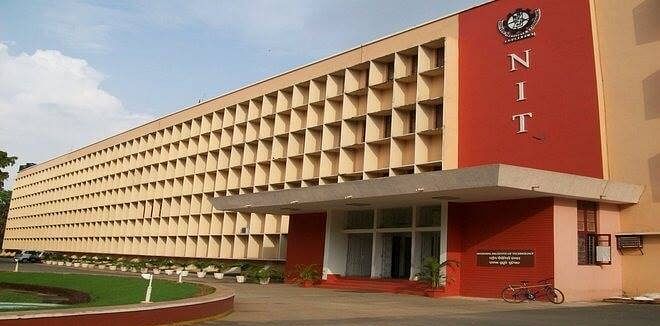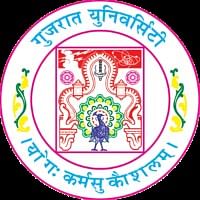M.Sc Life Science Syllabus and Subjects

The MSc Life Science syllabus imparts specific practical, laboratory, and theoretical knowledge in the subject areas to the students, such as Plant Life, Ecology, Genetics, Animal Development, Immunology, etc. The course is covered in two years with core, electives and practical papers. The electives may vary depending on the university.
MSc Life Science subjects and syllabus enable graduates to increase their employment options in both the private and public sectors. Researcher, Botanist, Biotechnologist, Scientist, etc., are just a few of the MSc Life Science job opportunities.
Table of Contents
Semester Wise MSc Life Science Syllabus
The MSc Life Science syllabus studies five major parts: botany, zoology, microbiology, immunology, and genetics. The Life Science syllabus for the MSc is divided into four semesters: core, electives, and practical subjects. The table below highlights the MSc in Life Science syllabus.
MSc Life Science 1st Year Syllabus
The MSc Life Science syllabus for the first year is given in the table below:
|
Semester I |
Semester II |
|
Physical and Biological Chemistry |
Principles of Plant Sciences |
|
Microbiology |
Immunology |
|
Principles of Microbial Sciences |
Principles of Plant Sciences |
|
Molecular Cell Biology |
Mammalian Physiology |
|
Tools & Techniques in Life Sciences |
Environmental Science and Toxicology |
|
Cell Biology |
Inheritance Biology & Genetics |
MSc Life Science 1st Year Practicals
The MSc in Life Science Syllabus for 1st year contains a list of practicals given below:
- Molecular Biology
- Cell Biology
- Developmental Biology and Toxicology
MSc Life Science 2nd Year Syllabus
The life science syllabus for MSc in 2nd year is given in the table below:
|
Semester III |
Semester IV |
|
Analytical and Separation Techniques |
Genetics |
|
Animal Physiology |
Seminar / Field /Industrial visit |
|
Bioinstrumentation |
Assignment / Group Discussion |
|
Applied Botany |
Dissertation / Project Work |
|
Bioinformatics and Biostatistics |
- |
|
Molecular Biology and Animal |
- |
MSc Life Science 2nd Year Practicals
The M.Sc Life Science Syllabus for the 2nd year contains a list of practicals given below:
- Bioinformatics and Biostatistics
- Animal Biotechnology
- Analytical and Separation Techniques
M.Sc Life Science Subjects
Among the life science subjects available for the MSc degree are biochemistry, animal physiology, animal diversity, immunology, molecular biology, genetics, and other fields. The core, electives, and practical categories of the Life Science MSc Syllabus are listed here.
MSc Life Science Core Subjects
The table below lists the core subjects for the M.Sc Life Science subjects:
- Physical and Biological Chemistry
- Principles of Microbial Sciences
- Microbiology
- Immunology
- Principles of Plant Sciences
- Mammalian Physiology
- Food Science and Food Microbiology
- Animal Physiology
MSc Life Science Elective Subjects
The life sciences subjects for MSc offer a range of electives which are given in the list below:
- Enzymology and metabolism
- Population Ecology
- Fermentation Technology
- Proteomics and Genomics
- Aquarium Management
- Molecular Endocrinology and Reproductive Physiology
- Cell cell signalling
MSc Life Science Subjects In Detail
The MSc in Life Science syllabus studies various aspects of life science, from biology to botany and zoology. In the table given below, the MSc Life Science subjects are described in detail:
| MSc Life Science Subjects | Topics |
| Microbiology | Introduction to Microbiology, Isolation, characterization and preservation of microbial cultures, Microbial genetics. |
| Biochemistry | Introduction of biomolecules, Carbohydrate metabolism, Photosynthesis and pigments of life. |
| Cell Biology | Structure and Function of Cell and its Organelles, Cytoskeleton, Cell Division, Cellular communication. |
| Immunology | Basic concepts in immunology, components of the immune system, MHC, Complement system, Adaptive Immunity to Infection. |
| Advances in Structural Biology | A familiarity with the NMR, X-ray, History of Structural Biology, Nucleosome and Chromatin structure. |
M.Sc Life Science Course Structure
Numerous specialised choices are available to students in the M.Sc. Life Science syllabus. It seeks to offer a thorough, practical understanding of the course's guiding ideas. Below is a description of the MSc Life Science course outline:
- IV Semesters
- Core and Elective subjects
- Practical and Laboratory
- Dissertation
M.Sc Life Science Teaching Methodology and Techniques
The MSc Life Science syllabus includes various teaching methods and techniques that help students understand multiple topics taught in their classes. Some of the different teaching methodologies and strategies adopted in the syllabus of MSc Life Science are as follows:
- Practical & Laboratory sessions
- The emphasis of Practical Learning
- Designing cost-effective and straightforward experiments.
- Guest Lectures, Seminars, and Workshop
- Group Assignment and Discussion
- Learning through Industrial Visit
- Research & Development
M.Sc Life Science Projects
MSc Life Science courses have projects that the candidate must submit at the semester's end. These projects evaluate the candidates on their observational skills, analysis, and report structure, which prepare them for industries. Below are some of the tasks for the life science syllabus for the MSc.
- CRISPR and Genetic Engineering. Normally, we think of our DNA as being set in stone
- Epidemiology and Coronavirus
- Prions
- Cancer Biology
- Behavioural Economics
- Endangered Species Recovery
M.Sc Life Science Reference Books
The MSc Life Science syllabus contains a list of reference books which is given in the table below:
|
Books |
Authors |
|
Principles of Genetics |
D. Peter Snustad |
|
Principles and Techniques of Biochemistry and Molecular Biology |
Keith Wilson |
|
Immunology |
Janis Kuby |
|
The Cell: A Molecular Approach |
Geoffrey M. Cooper |
|
Biologia Del Desarrollo/ Developmental Biology |
Scott F. Gilbert |
Top M.Sc Life Science Colleges
Top Science Entrance Exams
M.Sc Life Science Fee Structure
FAQs on M.Sc Life Science Syllabus and Subjects
Q: What is the subject of M.Sc life science?
Q: How many subjects are there in life science?
Q: Is M.Sc life science good?
Q: Is MSc life sciences and MSc zoology same?
























